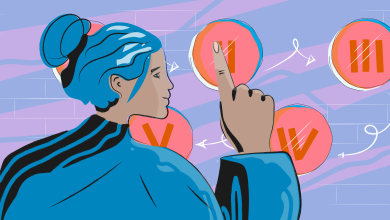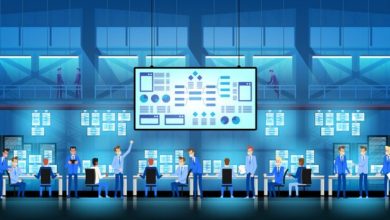Why Do College Students Need Help with Programming Assignments?

Foreword: this is a guide for high school students, freshmen, and those who are desperate for programming and thought that it was difficult and “not for me.”
Programming is not an easy field of knowledge to study, especially when it comes to doing assignments. It is one of the reasons why many refuse to learn further. I do not blame anyone, everyone chooses their own path and their own place, but the years spent cannot be returned. It is better to get help when you are faced with some problems while doing programming homework than to refuse to study at all. Such help can be obtained by asking to do my programming assignment on special websites. There, an expert who is knowledgeable in your programming language will help you quickly.
Difficulty in learning to be a programmer
Enrolling in a college, the first thing you encounter is a huge flow of information and absolute disorientation. Everything around is new, perhaps a new city, people, teachers, audiences, and so on, and it is extremely difficult for some students to swim in this endless stream. Each specialty has its own pitfalls, and we will analyze programming.
IT specialists face a number of problems related to information flow. Programming is a modern and constantly developing direction, and every day (if not more often), new technologies appear, and with them, new terms, algorithms, and paradigms appear.
And at the first lecture, hearing the words “programming pattern,” “compiling,” “encapsulation,” and “polymorphism” got some goosebumps run through because just yesterday you peacefully passed an exam in computer science, where they gave tasks like “convert decimal 12 to binary,” wrote school problems in Pascal and thought that programming was not that difficult. It may be so, but the new flow of information can greatly shock the newly minted student.
Why do college students need help with programming assignments?
Faced with the pool of the unknown, the first thing that a person feels is fear because the incomprehensible to us is most often associated with danger and some fear. This in itself repels, and a number of other obstacles appear from above:
- Programming doesn’t like inaccuracies.
- Did you accidentally put a letter in a random place in the program? – compilation error
- Did you make a mistake with the types of variables? – compilation error
- Did you misunderstand the material and write the syntax of the language a little inaccurately? – compilation error
- Did you start the development environment? – compilation error
- Did you turn on the computer? – compilation error
- Did the code compile? – runtime error!
Of course, there are Python and JS with dynamic typing, but there will be no fewer runtime errors than compilation errors in compiled languages. And no one will explain to a freshman how a runtime error differs from a compilation error; they must empirically understand everything themselves, even though they see them for the first time.
A huge number of mistakes when learning a new language and syntax are normal practice; however, understanding how functions are used, data types are given, and how properties, methods, lambdas, etc. work takes a fair amount of time and practice. And that’s half the trouble.
- Information race. Not only does a person not have enough practice and even basic knowledge of non-educational programming languages, but they are also bombarded with all possible languages at once. Usually, in first elementary courses, many languages are studied at once: C-like languages, Python, JS, SQL, assembler, and much more.
And all of them are quite different from each other, to the point that the two programs seem to do the same thing but look like Chinese and English in one text. And it’s unlikely that you can learn everything at once because programming is about practice, not about theory, you can read as many articles as you like and watch millions of guides on YouTube, but you won’t start coding from this.
Practice and only practice will give an understanding of all the theories that one has learned. And there is very little time left to “code” because, at first, it can take several hours to figure out how “this” works in classes. And that’s superficial. And while you are studying this question, you will have five more others that require the same amount of time. It turns out a disappointing geometric progression of the information flow, in which it is very easy to drown.
- Additional subjects. At college, in addition to programming itself, there are other subjects: “beloved” by everyone, mathematical analysis, discrete mathematics, etc. And although these disciplines will conditionally help in programming, philosophy, history, sports and others are very unlikely to be helpful. I don’t deny their importance in the student journey, but they add a significant amount of complexity to learning.
- Lack of time. As I said, the practice of programming takes a lot of time, and besides it, there are other subjects, friends, family, and student life … And it can be physically impossible to break into all this.
- Choice of direction. Programming has several directions. Let’s distribute these areas as front-end, back-end, desktop development, and mobile development. And these are generalized categories. If you start looking for a “programmer profession” on popular job search platforms, your query will show (in order not to be unfounded, I suggest you, dear reader, see for yourself how many) N> 50 different offers.
And each of them requires its own set (stack) of technologies. And it often happens that you planned to make games and wanted to completely go into game development, and after trying the front end, it became dearer to you than anyone in the world. This is both a plus and a minus, yet the university offers the opportunity to try everything and not make the final choice of direction until graduation. However, it is quite difficult to switch from one industry to another without sufficient experience.
- Relaxation. There will be absolutely no time to lie down to rest. Any slack will affect the learning process, and it is extremely easy to fall out of the flow of study. If you skip one or two topics, you have to spend all weekends and evenings restoring the gaps and practicing what you missed. Moreover, the taste of freedom is sweet, and getting used to idleness, especially when there are a lot of students around who are skipping classes and covering objects by cheating or otherwise, is very easy.
It’s easy enough to become a programmer. The main thing is to have a goal, the tool to achieve which will be your mastered profession. Combine education at the college and self-study. Practice a lot, more code – more skill. And do not forget to get help when your programming assignments are challenging.














